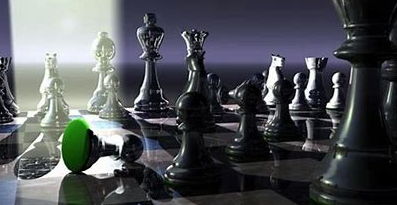
He was not an evil man and his politics were not totally, but he was more of a realist for that time.
Machiavelli had a significant and complex influence on the political thinking of the American Founding Fathers, especially regarding republicanism. His works, particularly The Prince and Discourses on Livy, provided insights into how to maintain stability and power in a republic, as well as the necessary balance between liberty and authority.
-
Republicanism and Liberty: Machiavelli's Discourses on Livy was particularly influential on the Founders' understanding of republican government. Unlike The Prince, which focuses more on autocratic rule, the Discourses argues for a mixed government structure—a balance between the monarchy, the aristocracy, and the people—which the Founders saw as an ideal framework for the U.S. system. The Founding Fathers, especially figures like Madison, Jefferson, and Franklin, drew from this idea when designing the U.S. Constitution, emphasizing the importance of checks and balances and separation of powers to avoid tyranny.
-
Ben Franklin: Franklin was one of the key figures who admired Machiavelli's pragmatism. He recognized the necessity of power in a republic but also understood the dangers of corruption. In Franklin's case, Machiavelli’s warnings about human nature and the need for virtuous leadership were absorbed into his political worldview. He was very aware that a republic needed constant vigilance to avoid decay, a theme in Machiavelli's works.
-
James Madison: Madison, often considered the "Father of the Constitution," was deeply influenced by the idea that a republic could preserve liberty if its institutions were designed to manage factions and prevent any one group from gaining too much power. This thinking aligns with Machiavelli’s views on the importance of balancing different social classes and interests to prevent the rise of tyranny. In Federalist No. 10, Madison argued that a large republic could better control factions, which was essentially a Machiavellian concept of mixing interests to maintain stability.
-
Thomas Jefferson: Jefferson admired the classical republican ideals that Machiavelli also championed, particularly the notion that a republic should promote virtue and citizen participation. Like Madison, Jefferson feared concentrated power and believed in the importance of agrarianism and a decentralized government, which would be in line with Machiavelli’s preference for civic virtue and a republic that is not overly dominated by elites.
-
Alexander Hamilton: Hamilton, in contrast to Madison and Jefferson, was more favorable to a strong central government and a more robust executive. While Hamilton may have appreciated Machiavelli's insights into the importance of a strong state for survival, he perhaps did not adopt Machiavelli’s warnings about the dangers of concentrated power in a republic. Hamilton's vision for the United States leaned more toward a mixed government where the executive (in the form of a strong president) played a prominent role. Some have argued that his preference for centralized power was at odds with the more democratic republicanism that Madison and Jefferson promoted, which was heavily influenced by Machiavelli's ideas about maintaining liberty and preventing aristocratic domination.
Machiavelli was a major indirect and direct influence upon the political thinking of the Founding Fathers of the United States due to his overwhelming favoritism of republicanism and the republican type of government. According to John McCormick, it is still very much debatable whether or not Machiavelli was "an advisor of tyranny or partisan of liberty."
Benjamin Franklin, James Madison, and Thomas Jefferson followed Machiavelli's republicanism when they opposed what they saw as the emerging aristocracy that they feared Alexander Hamilton was creating with the Federalist Party.[120] Hamilton learned from Machiavelli about the importance of foreign policy for domestic policy but may have broken from him regarding how rapacious a republic needed to be to survive. George Washington was less influenced by Machiavelli